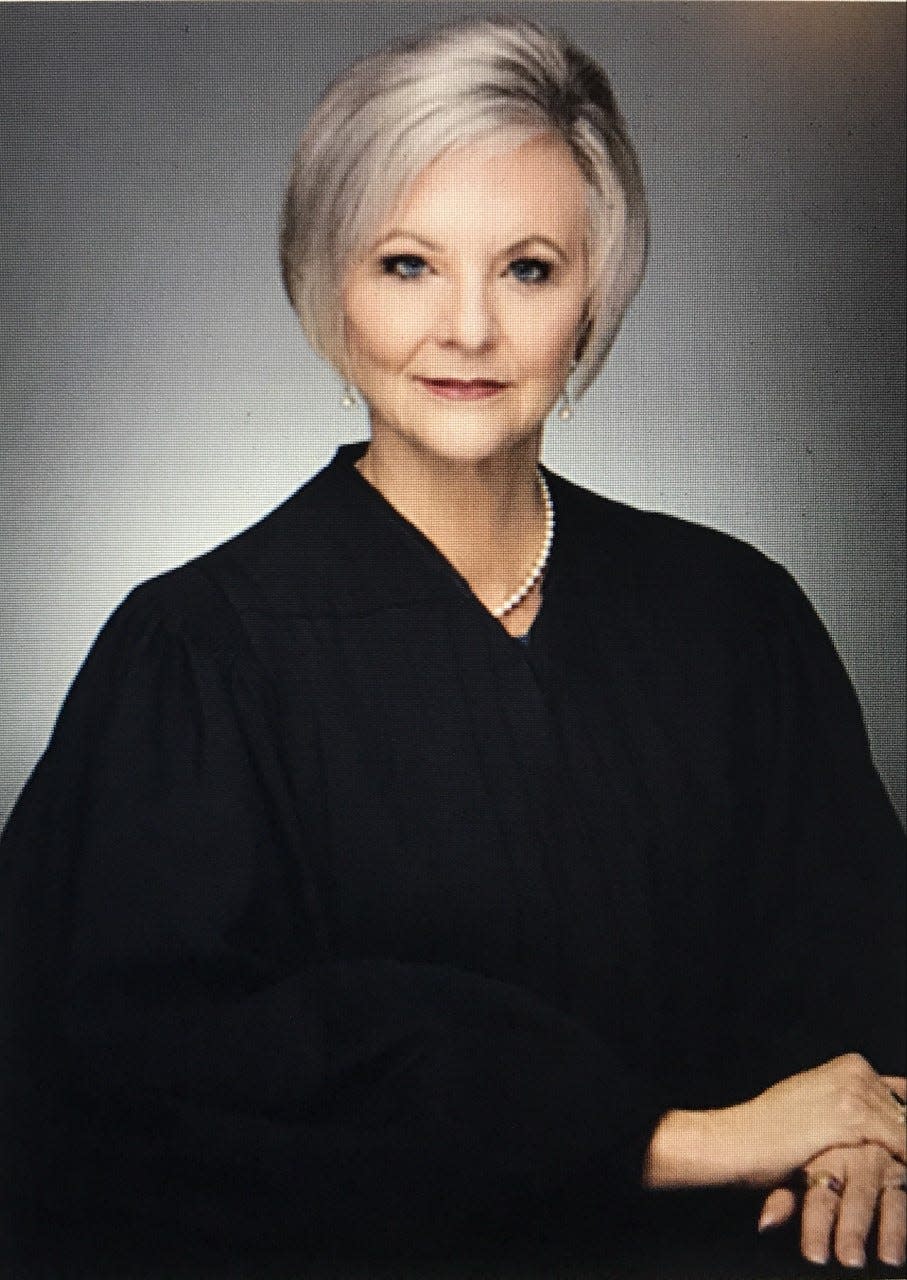Circuit Judge Margaret Hudson retiring, will return as senior judge

Circuit Judge Margaret Hudson is giving her “legal gut” a break from the difficult decisions she has had to make during her years on the bench.
Hudson’s term does not end until 2026. And she’s only 62, so she has plenty of years left before Florida’s mandatory retirement age for judges, which is 75.
But she said it’s time.
Appoint or elect:Retiring Volusia Circuit Judge Joseph Will says judges should be appointed, not elected
Persistence key for Washington:For Palm Coast attorney Alicia Washington, persistence earns her a judgeship
Advice from judges:'Work hard, never give up' among advice from area's first 2 Black women circuit judges
“My husband in January will have been retired for 17 years,” Hudson said. “It's now my turn. And we just have a lot of things we want to do that we haven't been able to do.”
Hudson’s departure is effective Jan. 4 and will mean someone will have to take over her probate docket. That someone will be Circuit Judge James Clayton. Circuit Judge Randell Rowe III will take Clayton's felony docket, while Circuit Judge Michael S. Orfinger will handle Rowe’s civil docket.
Circuit Judge Joan Anthony, who is currently presiding over unified family court cases in St. Augustine, will take over Orfinger’s juvenile docket in Daytona Beach.
Hudson’s departure also opens a circuit seat. But Gov. Ron DeSantis has yet to ask the 7th Circuit Judicial Nominating Commission to begin the process of finding a lawyer to fill Hudson’s soon-to-be vacant seat, according to an email last week from the commission.
'A mentor to many of us'
In a press release, Clayton praised Hudson.
“Judge Hudson has been a valued colleague and a mentor to many of us,” Clayton stated. “We will miss her depth of knowledge and hope she will return as a senior judge to help out from time to time. She has been a dedicated public servant, and we wish her the best in retirement.”
Hudson was appointed to the bench in 2006 by then-Gov. Jeb Bush. She ran unopposed for her seat in 2008, 2014 and 2020, according to the release.
Since her appointment, Hudson has presided over a wide variety of cases, such as felony, civil, probate, dependency and guardianship.
“They all have their pros and cons as most everything does,” Hudson said in a phone interview. “I've enjoyed every division I've been in.”
She said she asked for reassignments to “get a broad spectrum of experience.”
And they can all be difficult.
In civil division, judges make rulings that take money or property from someone and give it to someone else, Hudson said.
“That’s always hard, especially when there may be some other reasons that you might not want to do that but you have to follow the law and do what you have to,” Hudson said.
In dependency, judges may have to split up families and remove children from their parents.
“That’s never easy, or, rarely, is that ever what the kid wants,” Hudson said.
"And when you can’t reunify them and you have to permanently sever the family ties it can be very hard, especially when you hear the stories a year or two later about a child that you had to make those decisions on and then something went bad,” Hudson said. “Either they didn't do well in their adopted home or they don't get adopted and they end up aging out of foster care. Those are all hard decisions.”
But then there are the adoptions.
“On the flip side, in dependency you do get to do the adoption," Hudson said. "I have a whole picture board of many of the adoptions I did when I was in dependency."
And felony dockets can also be difficult.
“Sometimes it's hard to make a ruling legally correct in favor of the defendant when you know the victim was traumatized by something and now you've affected the way that the trial is going to go.”
But you can't follow your emotions, she said.
“Those are hard decisions, but you've got to follow the law and not go with necessarily what your heart would tell you to do,” Hudson said. “You have to follow the law and go with your legal gut is what I call it.”
Probate and guardianship can also pose difficult decisions when someone becomes incapacitated usually due to age.
“Then you've got a lot of family fighting over who gets to control mom's placement or medical care or money,” Hudson said. ”They fight a lot over money. And it can be hard to make the decision for the right person when you know that the person who is now incapacitated, loves all of her kids and would like all of them to be involved but that’s not what’s best from a legal perspective.”
When asked her thoughts about distrust in the legal system in a divided country, Hudson said she does not believe there’s been a big change.
“I don't know that it's any different than it's been during my whole tenure," she said. "There's lots of people that distrust the legal system. But I just have to do what's right.”
She said there are always critics of the justice system.
Hudson said: “It’s always under attack for what people may perceive as an improper ruling, but you just got to do what you think is right and live with the consequences.”
This article originally appeared on The Daytona Beach News-Journal: Circuit Judge Margaret Hudson retiring, will return as senior judge

